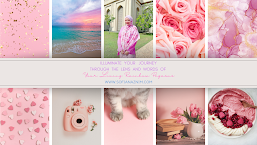🧕 The Truth About Women in Islam: Honor, Empowerment, and Balance
Few topics are as misunderstood as the status of women in Islam. For many, the image is clouded by cultural practices, media portrayals, or outdated stereotypes. But what does Islam really say about women?
The truth is, Islam gave women rights, dignity, and spiritual equality over 1,400 years ago - at a time when women were often treated as property or burdens.
Let’s uncover the real story.
🌿 Women and Men: Equal in Worth, Unique in Roles
In Islam, men and women are equal in value and accountability before God.
“Indeed, the most noble of you in the sight of Allah is the most righteous of you.”
— [Qur’an 49:13]
They are not identical, but they are complementary. Just as night and day serve different purposes yet complete the same cycle, Islam honors the natural differences while upholding mutual respect.
🏛️ Islamic Rights for Women: Ahead of Their Time
When Islam was revealed in the 7th century, it granted women unprecedented rights in a patriarchal world:
- The right to own property (even after marriage)
- The right to work and earn independently
- The right to inherit wealth
- The right to choose their spouse
- The right to education
- The right to divorce (when necessary)
- The right to keep their family name
- The right to spiritual leadership and access to religious spaces
Compare this to women in many parts of the world who couldn’t vote, inherit, or attend school even in the 19th century - and you’ll see how revolutionary these rights were.
💬 What About the Hijab? Isn’t That Oppressive?
The hijab, or modest dress, is often misunderstood. In Islam, modesty applies to both men and women, and the hijab is a choice, a symbol of faith, and a protection of dignity, not a tool of oppression.
Many Muslim women find empowerment in the hijab, seeing it as a statement of identity, self-respect, and devotion to God - not submission to men.
Oppression comes not from Islam, but from cultures or systems that twist religion to control. Islam itself stands for the opposite.
🕊️ The Prophet Muhammad’s (PBUH) Example
The Prophet Muhammad (peace be upon him) was a champion of women’s rights:
- He treated his wives with gentleness, love, and respect.
- He praised his daughter Fatimah as “a part of me” and stood when she entered the room.
- He encouraged girls’ education and condemned the practice of burying daughters alive (a pre-Islamic custom).
He said:
“The best of you are those who are best to their women.”
— [Hadith]
If people today mistreat women in the name of Islam, they are acting against the very teachings of the Prophet.
🌟 Muslim Women Throughout History
Islamic history is filled with remarkable women who led, taught, and transformed society:
- Khadijah bint Khuwaylid - the Prophet’s wife, a successful businesswoman and the first believer in Islam.
- Aisha bint Abu Bakr - a scholar who narrated over 2,000 hadiths and taught generations of men and women.
- Fatimah al-Fihri - founder of the world’s oldest university (University of al-Qarawiyyin in Morocco).
- Rufaydah al-Aslamiyyah - the first known Muslim nurse and social worker.
These women weren’t oppressed - they were empowered by their faith.
🤍 A Final Reflection: Look Beyond the Noise
If you’ve ever wondered, “Can a woman have honor, independence, and closeness to God in Islam?” - the answer is yes.
Islam doesn’t reduce women.
Islam raises them.
Before judging Islam by headlines or harsh voices, take a moment to listen to the women who live it with pride and love. You might be surprised by what you find.
🕊️ Ready to explore deeper?
Discover the beauty, wisdom, and truth of Islam from its very core. Join me in the special section of my blog, Understanding Islam, where I share heartfelt reflections and eye-opening articles for seekers at every stage.
👉 Click here to enter the Understanding Islam section
✨ Where understanding begins and hearts find light ✨
♡ Explore reflections, articles, and insights on Islam at www.sofianaznim.com ♡
⋆˙⟡Follow more soulful moments @sf_artography⋆˙⟡
































1 Comments
nice
ReplyDelete